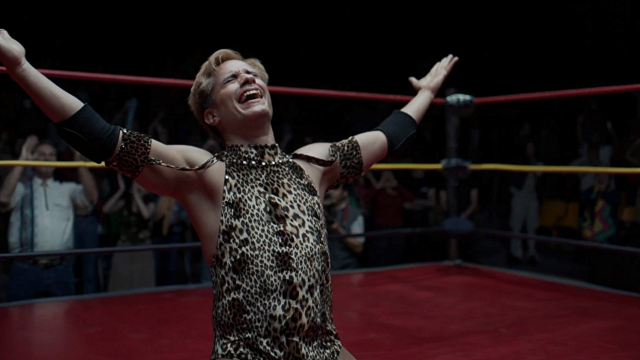This Week You Will Embrace:
- luchadores
- refugees
- festival winners
- award winners
- technology!
Send articles throughout the week to ploughmanplods [at] gmail, post articles from the past week below for discussion and Have a Happy Friday!
Gael García Bernal talks to GQ-UK‘s Marisa Meltzer about his new role as a popular luchador, sexuality, and representing Mexico when in the US:
“I remembered Cassandro, but I didn’t remember him that well,” he says. “I started to think, like, Of course, as a Mexican, I have to do a lucha libre film one day.” He took on the role, alongside Raúl Castillo from Looking, Roberta Colindrez of A League of Their Own, and Bad Bunny as a flirt named Felipe. “The story of Cassandro is a very modern, archetypal one of a person that had to play another character in order to be himself,” García Bernal says. “I play a different character in order to be myself. That’s why I’m an actor. I play different characters to find out who I am.”
AnOther Magazine‘s Alex Denny reports on the unique approach to refugee cinema in Fremont:
For Film Comment, Jordan Cronk runs down the winning and the wild at this year’s Venice Film Festival:
In sheer aesthetic audacity, Poor Things was superseded only by Harmony Korine’s out-of-competition entry AGGRO DR1FT, a work that, to hear the director tell it, marks a conscious step away from cinema, a medium that can no longer accommodate his outré stylings. Inspired by video games, scored by cult electronic producer AraabMuzik, and shot entirely with infrared cameras (by cinematographer Arnaud Potier), it moves with the fluidity of an RPG and the vividness of a particularly intense acid trip—a feeling only enhanced by the appearance of rapper Travis Scott in a fittingly lascivious supporting role. But while its unique thermal imaging techniques and absurdly threadbare narrative—centered on an existentially conflicted hit man played by Spanish journeyman Jordi Mollà—appear to reinforce the director’s rebuke of film form, AGGRO DR1FT still looks and operates thematically something like Trash Humpers (2009) by way of Spring Breakers (2012)—which, I must admit to the potential chagrin of Korine, may be one platonic ideal of cinema.
Crooked Marquee‘s Audrey Fox looks back at Cliff Robertson’s Oscar win for Charly and the modern awards campaigning it signaled:
When Robertson took home the Academy Award for Best Actor, there were little more than a few raised eyebrows at the fact that he won over Peter O’Toole for A Lion in Winter, who was considered by most to be the frontrunner in the race. But just a few weeks later, the hammer came down, in the form of an eviscerating article in Time that bemoaned the state of the awards business, while tearing Robertson down seemingly to make an example out of him. Criticizing the “outright excessive and vulgar solicitation of votes” prevalent within the Academy, Time mocked the garish full page ads taken out for Robertson in seemingly every major trade publication, whereas his competitors – they claim – were perfectly happy to let their performances speak for themselves. Although the article reserves specific ire for his Oscar campaign, it’s actually just a laundry list of complaints about the Academy Awards – actors winning for films in a perceived attempt to make up for losing earlier in their career, actors being nominated so that they’ll show up for the ceremony – many of which linger to this day.
And at The New York Times, Jim Windolf tracks the world’s changing relationship to technology through the films of Sandra Bullock:
The crashes, explosions and flirtatious repartee camouflage the fact that “Speed” is, at its heart, an analog-versus-digital fable. Along the course of an action-packed morning, Annie and Jack make use of soon-to-be-outdated technological tools to vanquish a madman who relies on state-of-the-art gizmos. In 1994, when “Speed” was a summertime blockbuster, roughly 31 percent of households in the United States had a computer, and a majority of people who gained access to the internet paid dearly for each online minute as their modems hissed. […] To show he means business, the Hopper character kills a hostage by detonating an explosive device via remote control from his apartment. Seconds later, his eyes glued to a TV news report of the fatality, he delivers a line suggesting that, in the world of “Speed,” evil and tech innovations go hand in hand: “Interactive TV, Jack! Wave of the future!”

